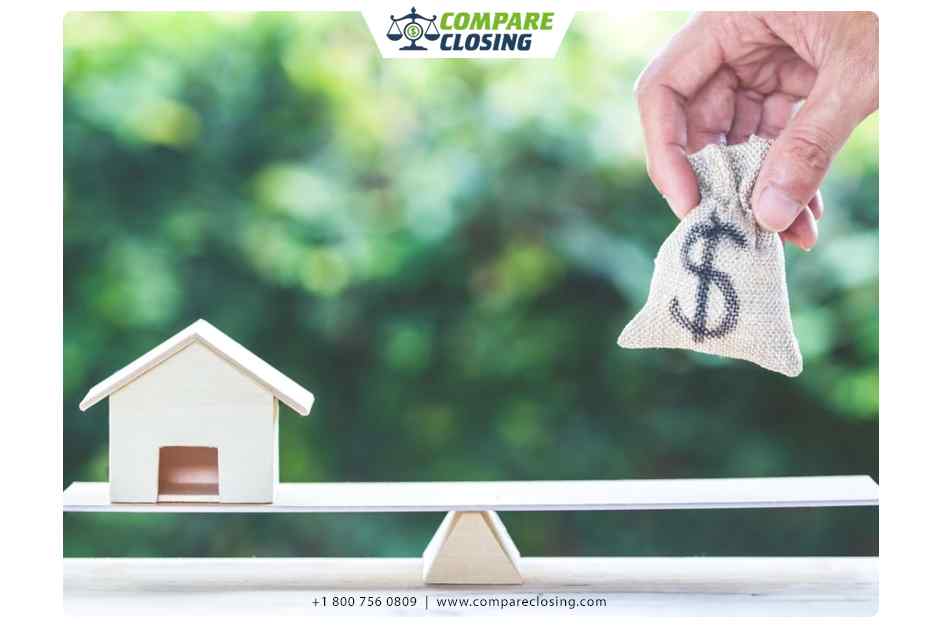Table of Contents
- What Are Netting Escrows & How Does It Work?: The Best Guide - January 2, 2024
- The Secret About Prescriptive Easement: Top Guide 1 Must Know - December 4, 2023
- About Home Equity Loans In Texas And How Can One Obtain It - November 27, 2023
How to Build Equity
When you’re a homeowner, the mortgage payments that you make every month can help you build a powerful asset which is your home equity.
The home equity acts as the amount of your home that you own, and it keeps growing over a period of time.
What is Equity in a Home?
Home equity is the portion of your home that you own, which is calculated by knocking off your mortgage balance from the home’s market value.
So if the value of your home is $250,000 and if you owe $150,000 on your mortgage, then your home equity, would be
$250,000 – $150,000 = $100,000.
It is advisable to know how much equity you have because the borrowing amounts are set by your lenders based on the amount of equity you own.
You can either increase your property value or decrease your mortgage debt to build home equity.
The difference between the current market value of a property and the principal balance of all outstanding loans is how home equity can be defined.
When your mortgage balance is subtracted from the market value of your home you get the calculation of equity.
It is important to build home equity because, if need be it can be converted into cash through a home equity loan or a line of credit or cash.
To increase your home’s equity, you must increase your home’s value, and reduce your mortgage debt. Let us look at a few options:
Make a Big Down Payment
Down payments provide instant equity and kick starts the equity you build, the bigger the down payment, the more equity you have to start with.
If you’re able to put down a 20%, you can avoid having to pay private mortgage insurance, also known as PMI.
However, when determining the ideal amount of money to put down for you and your situation it is important to assess your finances and financial goals.
You must also consider how much savings you’ll have left after closing. It may be harder to handle financial emergencies or your regular monthly payment if you’re left with little to no cash reserves.
Pay More on Your Mortgage
Most mortgages are on an amortization schedule where your payments are made to cover both principal and interest in equal installments for a specified period of time till your loan is paid off.
Generally, in the beginning, a larger portion of your payment goes towards interest, and then over time more goes towards the principal. Consider paying more than you have to if it suits your pocket.
By doing this, you decrease your outstanding loan balance faster, as a result increasing your equity.
While doing this make sure the extra money you pay goes to cover the principal, and not towards the interest.
There are some ways to pay extra money on your mortgage, like adding a fixed sum to your payments each month, or switching to a biweekly mortgage schedule, or scheduling extra payments at regular intervals, and if receiving extra money such as tax refunds and tax gifts then using it to pay extra.
Refinance to a Shorter-Term Loan
There are 2 benefits of a shorter-term loan. Choosing for refinancing to a shorter loan term can help boost your equity.
When you opt for a 15-year mortgage, you get a lower interest rate, and also a larger portion of your payments goes towards principal rather than interest.
Compared to a 30-year mortgage this increases the amount of equity you build each month.
But the catch is that with a shorter-term loan payments are also higher, so you should plan and identify if there’s room in your budget for larger payments.
Improve the Property value
Making key home improvement projects like remodeling can boost your equity. According to Remodeling Magazine, the average payback on the most common upgrades is a 64% return on your investment.
Smaller projects, such as garage door replacements, can do a good job of increasing your equity, more so when you pay with cash rather than through a loan.
It’s important to consider how much the improvement will enhance your living experience within the home unless you’re remodeling with the intention of selling your home.
Before taking on the remodel consult with a real estate agent or other homes professional to determine which type of renovations will net you the highest return.
Wait for the value of your home to rise
You can simply be patient and wait for the home equity to go up if you’re not in a rush to build equity. The housing market fluctuates and so does your home’s value.
Local market conditions impact the value of your home naturally resulting in your home value varying; your home value will rise when the home prices increase and demand goes up in your area.
On the contrary, if the market slows, your home value may go down and you may lose some equity with it. These market changes are not in your hands to control, but they’re worth keeping in mind.
To get an idea of your home’s current value at any given time you can consult an appraiser or use an online estimating tool.
Conclusion
It may take some time to build equity, but it’s definitely beneficial; you can draw from your asset using a home equity loan or home equity line of credit once you have enough equity.
Making a bigger down payment, improving your property value paying more toward your mortgage every month, and trying to pay off in a shorter-term are just a few ways to start growing your equity.
Amanda Byford
Amanda Byford has bought and sold many houses in the past fifteen years and is actively managing an income property portfolio consisting of multi-family properties. During the buying and selling of these properties, she has gone through several different mortgage loan transactions. This experience and knowledge have helped her develop an avenue to guide consumers to their best available option by comparing lenders through the Compare Closing business.





